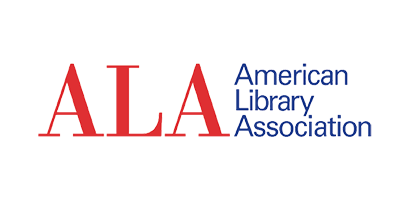

Authority is Constructed and Contextual
Information Creation as a Process
Information Has Value
Research as Inquiry
Scholarship as Conversation
Searching as Strategic Exploration

The purpose of this page is to provide the framework and guidance from the Association of College and Research Libraries (ACRL), one of the leading professional development organizations for academic librarianship.
ACRL is a division of the American Libraries Association (ALA) the main accrediting body for library and information science professional and master's degree programs. It also provides guidance, support, and advocacy for libraries of all types.
 |
 |
The Association of College and Research Libraries (ACRL) is a division of the American Libraries Association (ALA) that supports and enhances the professional development and growth of academic and research librarians through its numerous professional development activities. The organization sets standards and guidance for a variety of elements related to academic libraries and librarians.
The ACRL Framework for Information Literacy for Higher Education replaces the Competency Standards for Information Literacy, reflecting changes in the field and in student engagement with information processes. It provides us with a structure and context through which to approach our curriculum, learning objectives, and instructional practices. The Framework is built upon six core concepts, each with an associated set of knowledge practices and dispositions.
The ACRL Framework matters because it highlights that academic librarians, do not just make up content to teach information literacy and research-related courses and workshops. If highlights why an academic librarian teaching a course or workshop is teaching a particular topic or element of research and how that element relates to the bigger picture of scholarly research.
The document is fairly extensive so the key points are provided below. The entire document is available for download on the left column of this guide as well.
Define different types of authority, such as subject expertise (e.g., scholarship), societal position (e.g., public office or title), or special experience (e.g., participating in a historic event);
use research tools and indicators of authority to determine the credibility of sources, understanding the elements that might temper this credibility;
understand that many disciplines have acknowledged authorities in the sense of well-known scholars and publications that are widely considered “standard,” and yet, even in those situations, some scholars would challenge the authority of those sources;
recognize that authoritative content may be packaged formally or informally and may include sources of all media types;
acknowledge they are developing their authoritative voices in a particular area and recognize the responsibilities this entails, including seeking accuracy and reliability, respecting intellectual property, and participating in communities of practice;
Understand the increasingly social nature of the information ecosystem where authorities actively connect and sources develop over time.
Articulate the capabilities and constraints of information developed through various creation processes;
assess the fit between an information product’s creation process and a particular information need;
articulate the traditional and emerging processes of information creation and dissemination in a particular discipline;
recognize that information may be perceived differently based on the format in which it is packaged;
recognize the implications of information formats that contain static or dynamic information;
Monitor the value that is placed upon different types of information products in varying contexts;
Transfer knowledge of capabilities and constraints to new types of information products;
Develop, in their creation processes, an understanding that their choices impact the purposes for which the information product will be used and the message it conveys.
Give credit to the original ideas of others through proper attribution and citation;
understand that intellectual property is a legal and social construct that varies by culture;
Articulate the purpose and distinguishing characteristics of copyright, fair use, open access, and the public domain;
Understand how and why some individuals or groups of individuals may be underrepresented or systematically marginalized within the systems that produce and disseminate information;
Recognize issues of access or lack of access to information sources;
Decide where and how their information is published;
understand how the commodification of their personal information and online interactions affects the information they receive and the information they produce or disseminate online;
Make informed choices regarding their online actions in full awareness of issues related to privacy and the commodification of personal information.
formulate questions for research based on information gaps or on reexamination of existing, possibly conflicting, information;
determine an appropriate scope of the investigation;
deal with complex research by breaking complex questions into simple ones, limiting the scope of investigations;
Use various research methods based on need, circumstance, and type of inquiry;
monitor gathered information and assess for gaps or weaknesses;
Organize information in meaningful ways;
Synthesize ideas gathered from multiple sources;
Draw reasonable conclusions based on the analysis and interpretation of information.
Cite the contributing work of others in their information production;
contribute to the scholarly conversation at an appropriate level, such as local online community, guided discussion, undergraduate research journal, conference presentation/poster session;
Identify barriers to entering scholarly conversation via various venues;
Critically evaluate contributions made by others in participatory information environments;
Identify the contribution that particular articles, books, and other scholarly pieces make to disciplinary knowledge;
Summarize the changes in scholarly perspective over time on a particular topic within a specific discipline;
Recognize that a given scholarly work may not represent the only or majority perspective on the issue.
Determine the initial scope of the task required to meet their information needs;
Identify interested parties, such as scholars, organizations, governments, and industries, who might produce information about a topic and then determine how to access that information;
Utilize divergent (e.g., brainstorming) and convergent (e.g., selecting the best source) thinking when searching;
Match information needs and search strategies to appropriate search tools;
Design and refine needs and search strategies as necessary based on search results;
Understand how information systems (i.e., collections of recorded information) are organized to access relevant information;
Use different types of searching language (e.g., controlled vocabulary, keywords, natural language) appropriately;
Manage searching processes and results effectively.